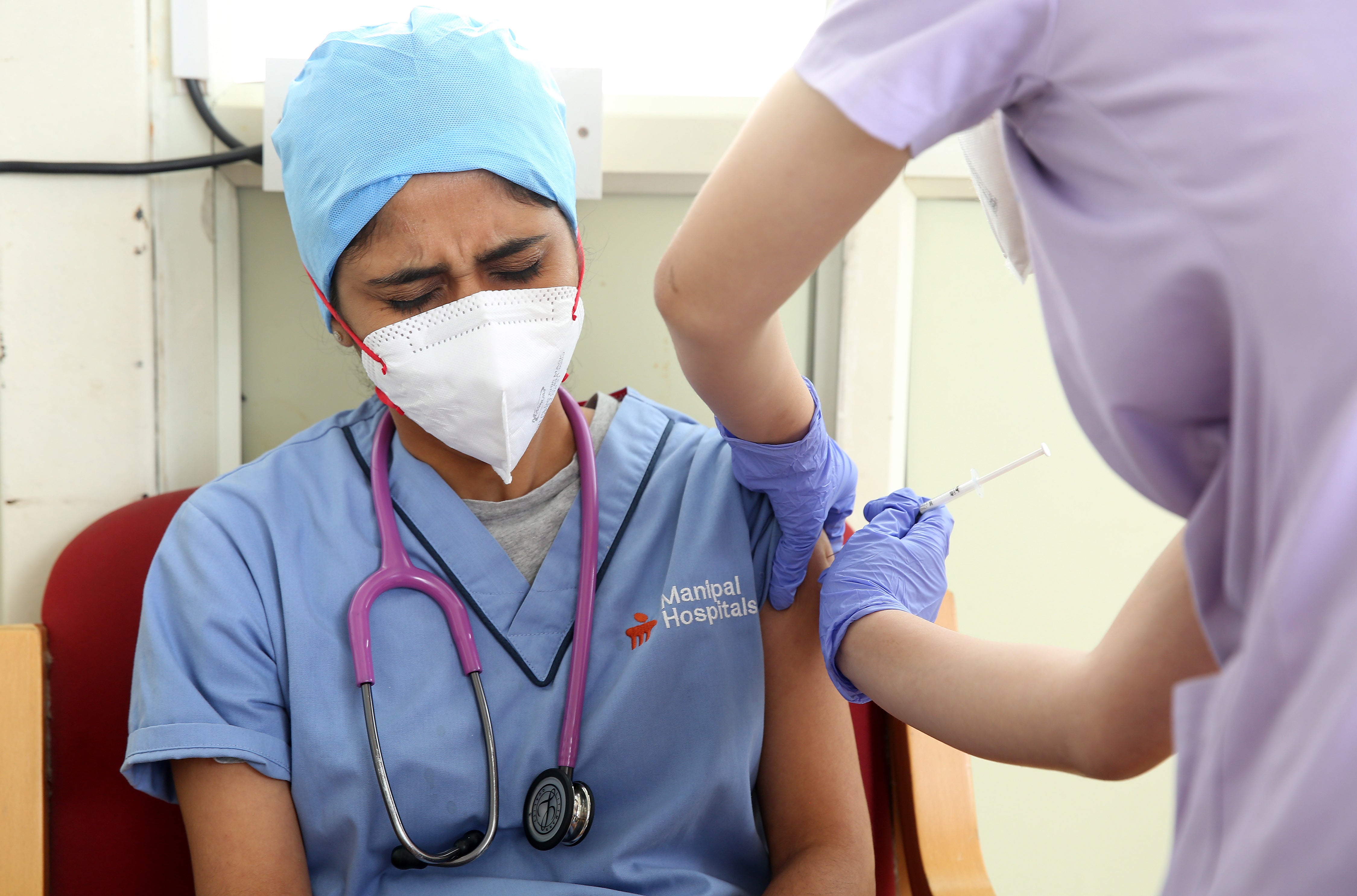India begins booster shots and bans election rallies as Covid cases surge
The country recorded 179,723 fresh infections, including 4,033 Omicron cases, on Monday

India has started administering Covid-19 vaccine booster shots to priority groups as infections surge across the country.
Termed a “precautionary dose” by Indian prime minister Narendra Modi, the third vaccine shot is currently being given only to healthcare and frontline workers along with those above the age of 60 who have comorbidities.
Last week, the government had said the booster dose would be the same one taken by individuals last year.
In a tweet, federal health minister Mansukh Mandaviya announced that the booster shots were being rolled out across the country.
He added that the Modi government was ready to protect citizens from Covid in every form, but concerns have only grown about delays in rolling out the booster doses for priority groups as Covid cases continue to soar across the country.
India recorded 179,723 fresh Covid cases on Monday, including 4,033 Omicron cases, pushing the country’s active caseload to 723,61 – the highest since May.
Mr Modi chaired a high-level meeting on the rising Covid cases in the country on Sunday and urged authorities to ensure stricter surveillance along with developing adequate health infrastructure at local levels.
The present surge has been driven by high infections from India’s large metropolises, including Mumbai, Delhi and Kolkata.
A total of 146 deaths were recorded in the last 24 hours.
While 91 per cent of the population has received one dose and vaccination for 15-18 year-olds was rolled out last week, only 66 per cent of the country’s adult population is currently fully vaccinated, according to the health ministry’s data.
Last year, the government had promised that it would vaccinate the country’s entire adult population by December 2021.
Concerns about rising cases have increased now because assembly elections across five states are scheduled to be held next month.
The states of Uttar Pradesh, Uttarakhand, Goa, Manipur and Punjab go to polls on 10 February.
While the elections will be conducted in a single phase in Punjab, Uttarakhand and Goa, Manipur will vote in two phases.
Meanwhile, Uttar Pradesh (UP), which is the country’s most populous state, will vote in seven phases from 10 February to 7 March.
UP is a bellwether state that could likely decide the fate of Mr Modi’s federal government in national elections that will be held in 2024.
The state recorded more than 7,000 cases on Sunday, a significant surge compared to just last week, when case numbers had dwindled to hundreds.
The country’s election commission, while announcing the poll schedule on Saturday, said physical political rallies and roadshows will not be allowed till 15 January due to the rise in Covid cases.
The commission also restricted the number of people allowed for door-to-door campaigning to five to limit the spread of the disease.
Last summer, India’s healthcare system was brought to its knees as a brutal second wave swept the country shortly after local elections were held in five other states where large maskless crowds had gathered for rallies.
Subscribe to Independent Premium to bookmark this article
Want to bookmark your favourite articles and stories to read or reference later? Start your Independent Premium subscription today.

Join our commenting forum
Join thought-provoking conversations, follow other Independent readers and see their replies